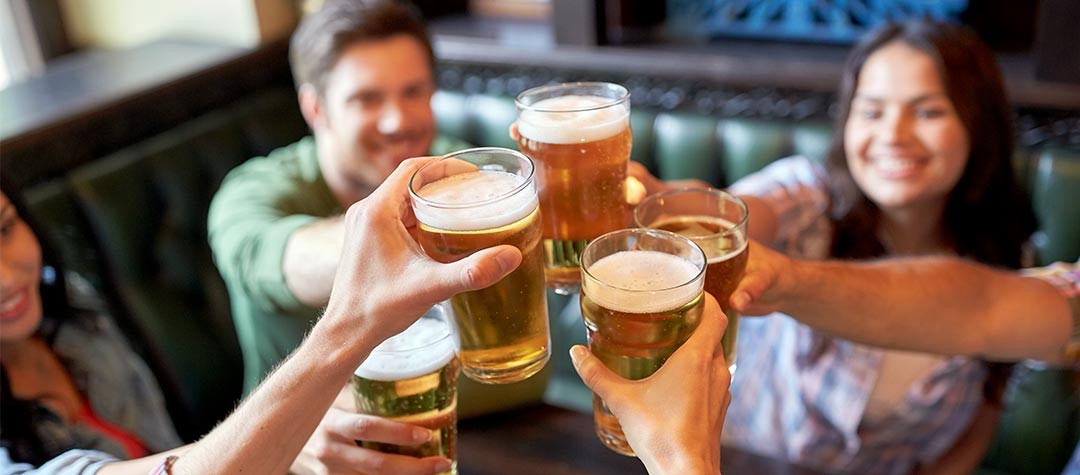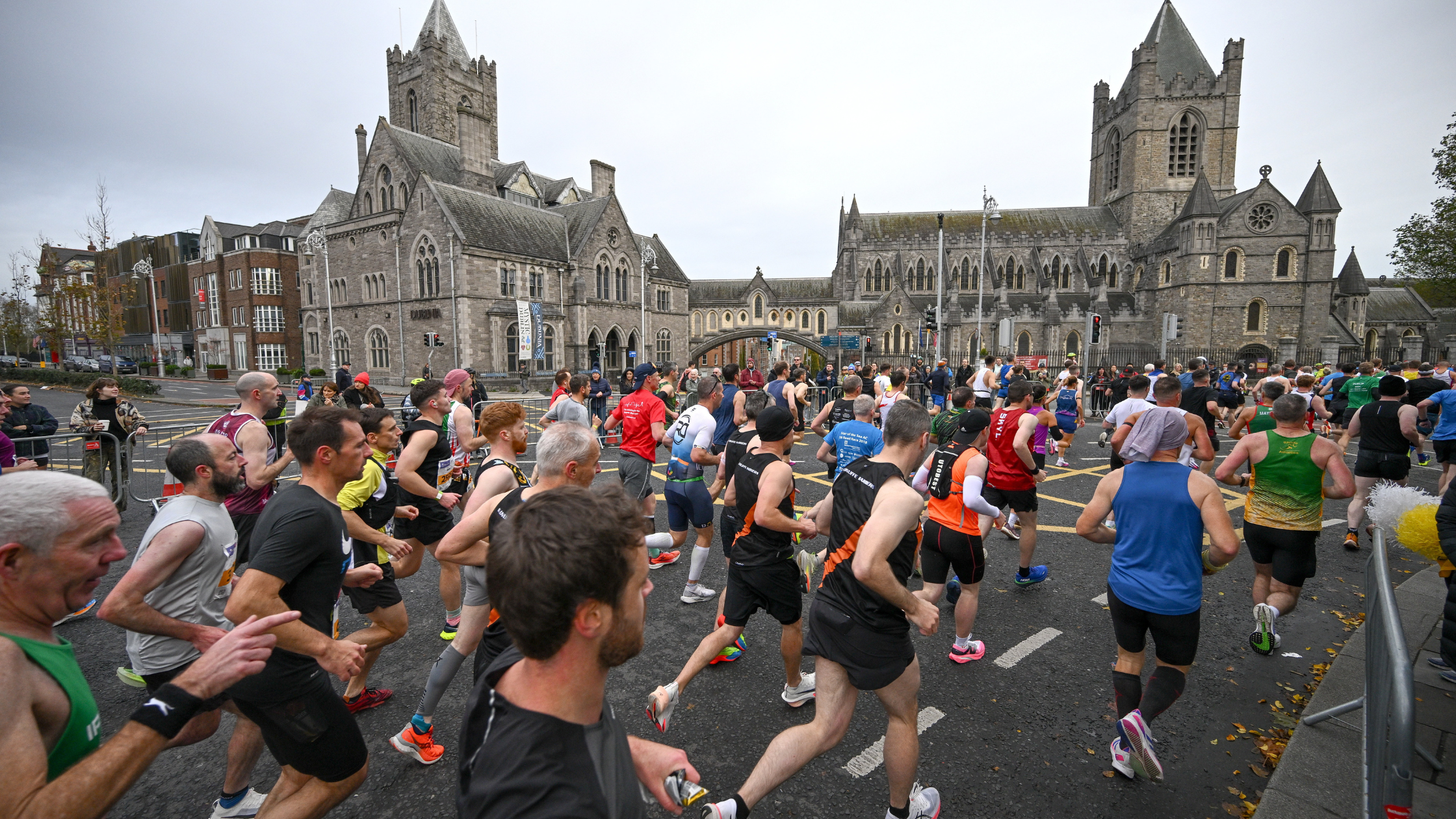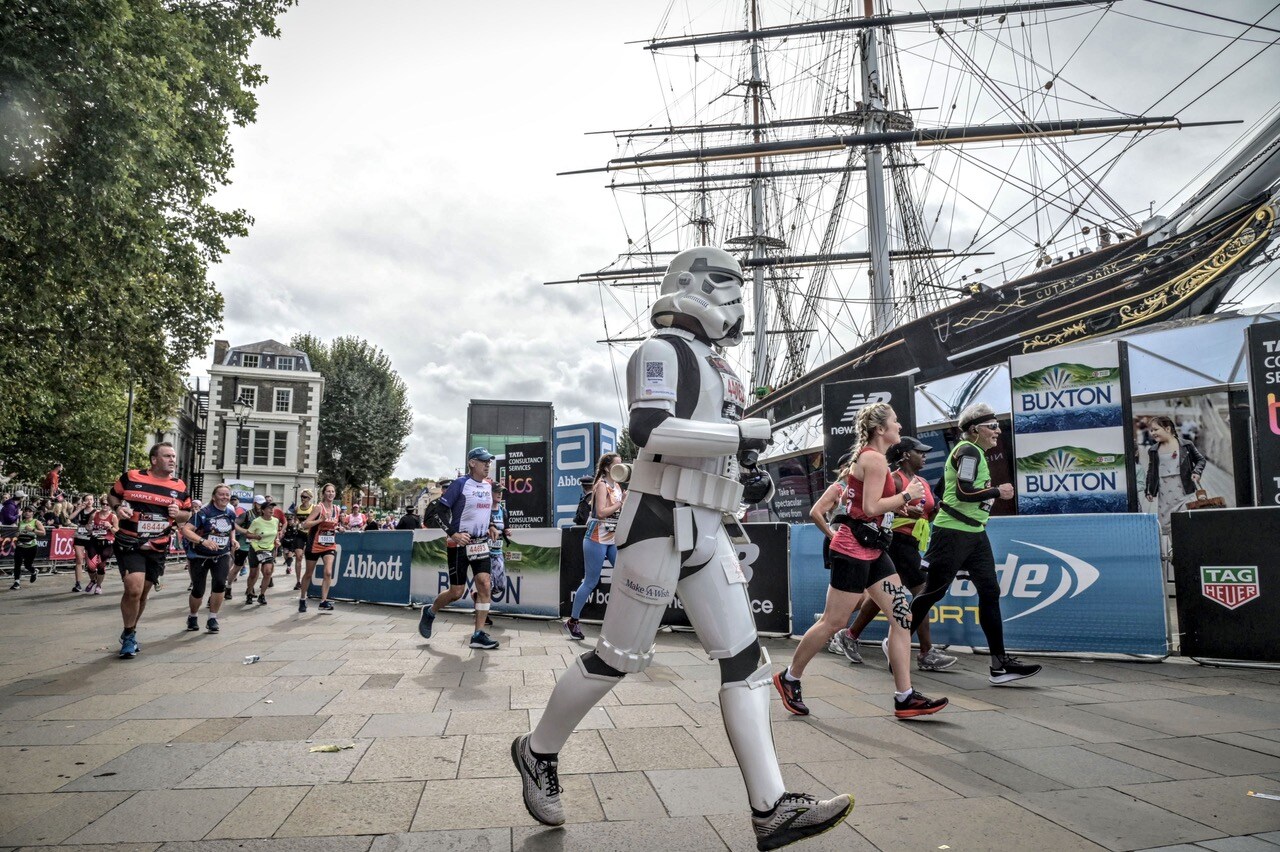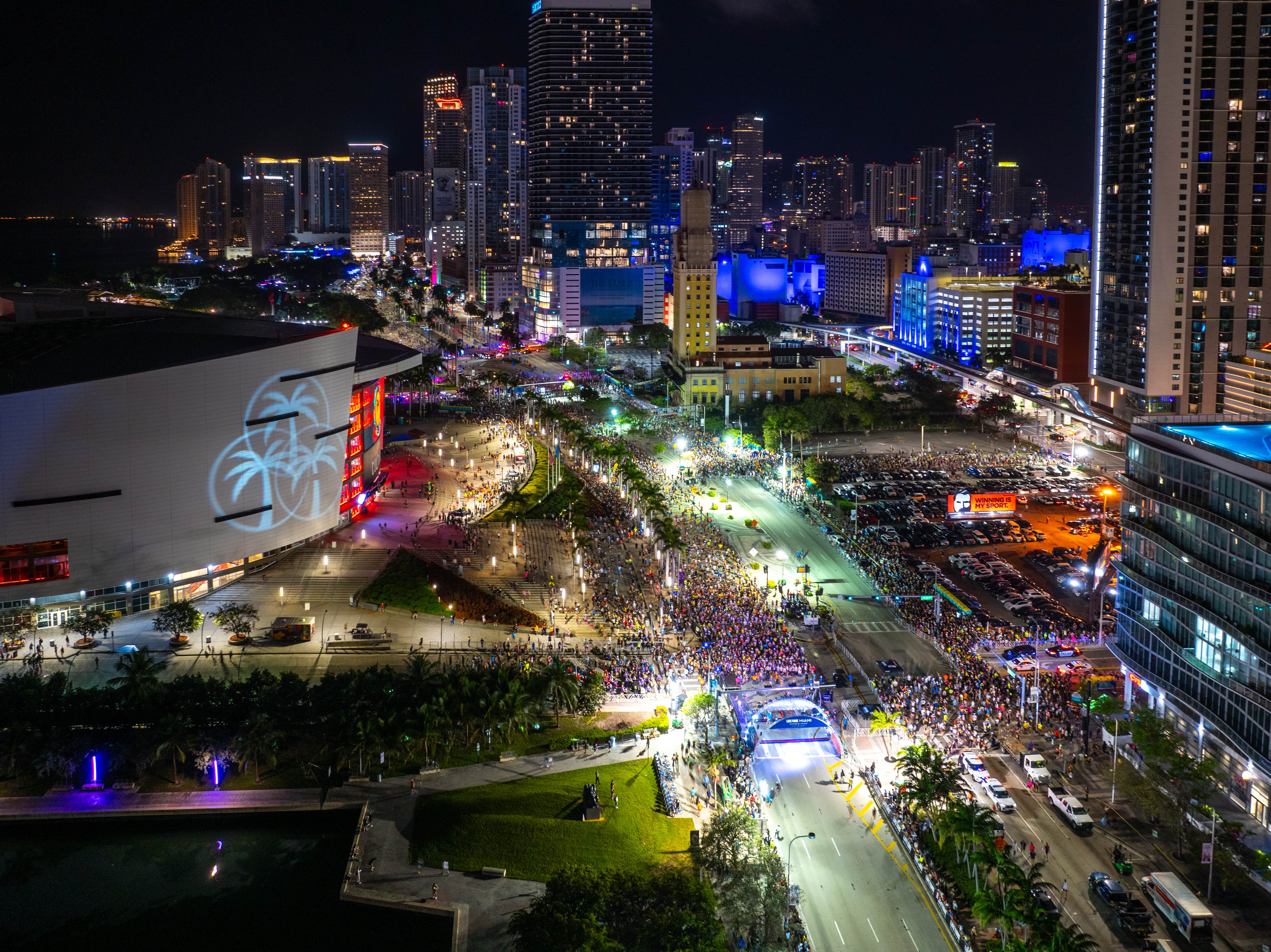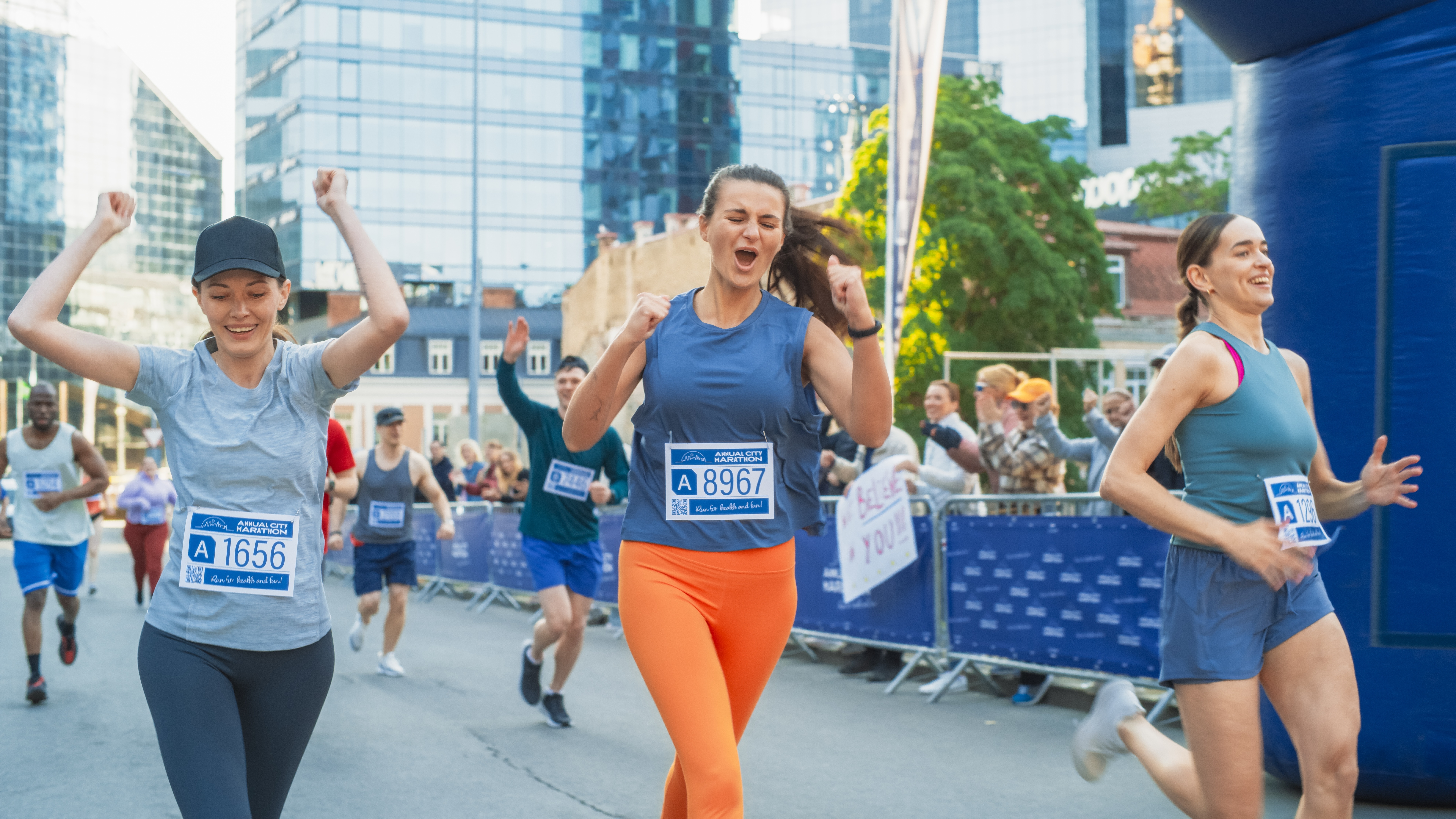A lot of runners like to have the occasional drink, a glass of wine here and there or a beer after a long workout. But when does a little constitute a lot and at what point does alcohol start to have an impact on performance?
How much is too much?
The guidelines on alcohol consumption in relation to general health vary from country to country, but in terms of drinking when you’re training for a race, it is a personal choice. Like most things in life, everything in moderation is probably a good thing. Indeed there is growing evidence that moderate amounts of alcohol can have a positive health benefit, like helping prevent heart disease, osteoporosis and reducing the risk of Alzheimer's disease.
But if you do decide to have a few drinks, what happens and how much will it affect your performance? Let’s be clear that when we talk about having a drink what does that mean? Well a drink is widely categorised as around 12 oz (355ml) of beer, 5 oz (148ml) of wine and 1.5 oz (44ml) of spirits. If you have too many of them, your running will suffer.
Effects of drinking alcohol when you run
1. Dehydration
As anyone who has ever had a hangover will testify, dehydration is a consequence of too much alcohol. In fact it can lead to a 3 per cent loss of body weight (in fluids) within four hours of consumption, which can be a real problem in hot conditions, where it is probably best to avoid alcohol altogether. The trouble is running will also dehydrate the body too. Your kidneys get to work overtime when you drink and of course you sweat when you run, so your body will just not have anything left in the tank.
Remember if you get dehydrated, you are vulnerable to fatigue, cramps and muscle strains. To combat the dehydrating effect, you should drink 8 oz of water for every alcoholic beverage you consume.
2. Sleep problems
If you drink too heavily and crash out, and let’s face most people have done that at least once in their lives, you will recall that you fall instantly into a deep sleep. That means you miss out on the first stage of sleep, and as a result, will wake up earlier than you should, with the added ‘bonus’ of being wide awake when you shouldn’t be.
3. Slows you down
Among the negative effects of alcohol is a slower reaction time. How might this be a problem? Well in conjunction with a reduced level of co-ordination, it means runners are more vulnerable to injury . If your technique is off, you could sustain a stress related injury. Or you might not be able to react quickly enough to a jump or obstacle in your path, or even if you see it, you might misjudge a leap and trip over.
4. Sugar cravings
When you’re exercising regularly, you really need you blood sugar levels to be stable. But they can be affected by excessive alcohol and as a result, you start to crave junk food. It’s because your liver is struggling to produce the amount of glucose you need, so your levels drop. That’s when you hit the chocolate and sweets.
5. Empty calories
Alcohol doesn’t contain any nutritional benefits, but it still has 7 calories per gram. And those calories get stored in the body like fat, generally accumulating around the stomach area. That means too much of it and you could be susceptible to the old beer belly. Runners don’t need to be carrying too much additional weight, so keep an eye on your intake and look for signs of a podgy belly.
6. Increased heart rate
Heart rate increases when you drink alcohol, as does your blood pressure. This can be particularly problematic for those with an underlying problem who then go and work out hard with a run, thus increasing their risk of a heart attack or stroke.
7. Muscle issues
Unfortunately alcohol does have a negative effect on muscle growth. Excessive amounts affect the levels of the muscle-building ‘male’ hormone, testosterone. And it also interferes with protein synthesis, the process where amino acids are joined together to form complete proteins. Neither of these things is ideal.
8. Slows recovery
One of its biggest crimes of alcohol is that it slows down a runner’s recovery because of the strain it puts on the liver. That organ helps the body recover from exercise, but it also monitors blood flow. Because increased blood flow can occur after you’ve had too much to drink, it focuses on trying to regulate that, rather than the body’s recovery.
The American College of Sports Medicine (ACSM) is fairly clear on its view on alcohol and its effects. Their guidelines state the following; “Acute alcohol ingestion is not associated with improvement in exercise capacity and may decrease performance levels; the consumption of alcohol may perturb the body’s temperature regulation mechanisms during exercises particularly in a cold environment.”
But remember there are also occasions when it is perfectly okay. Let’s not forget the 8,000 marathon runners in costume who run the Medoc Marathon in France every year. They serve wine at water stations there because the course winds its way through some of the best and most famous vineyards in the world. And winners take home their weight in grand crus! So make your own choice, armed with the knowledge of what may happen if you over-indulge.

